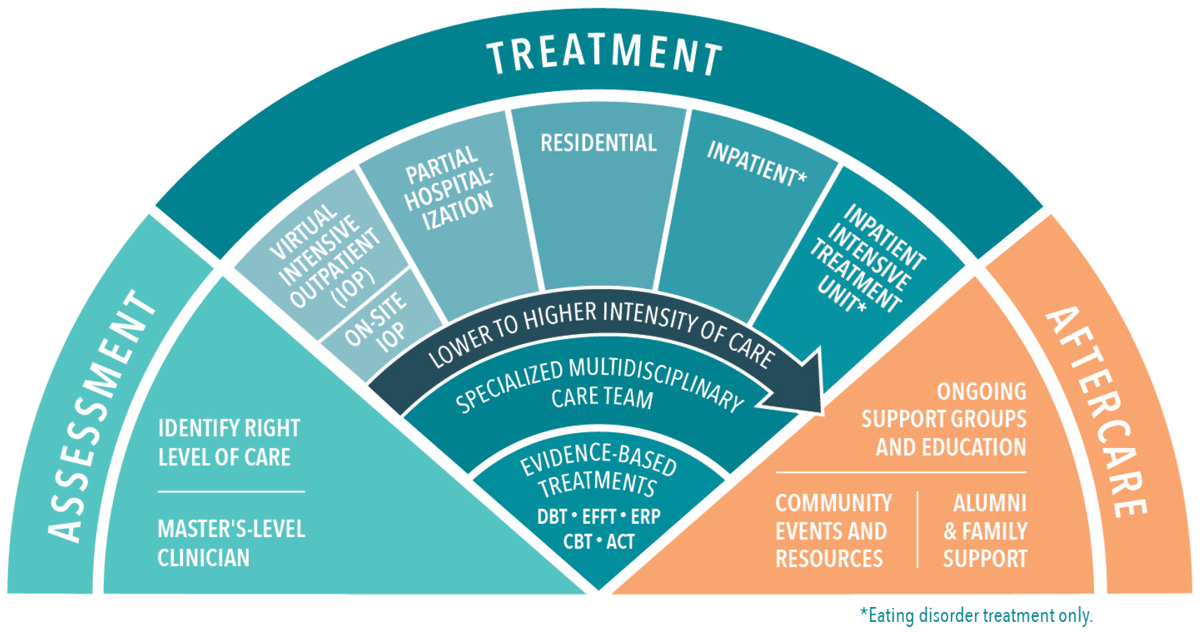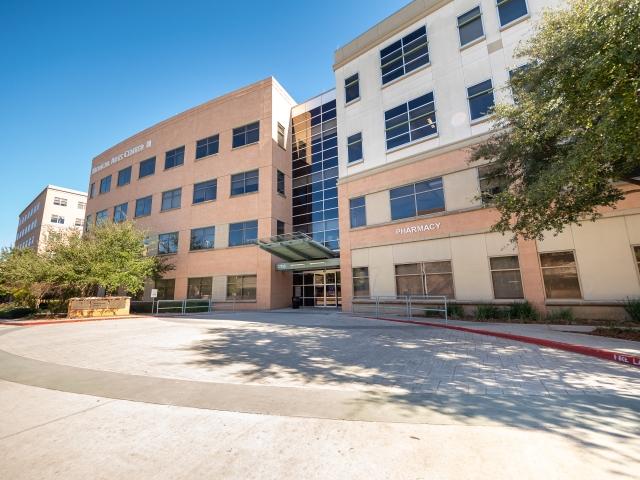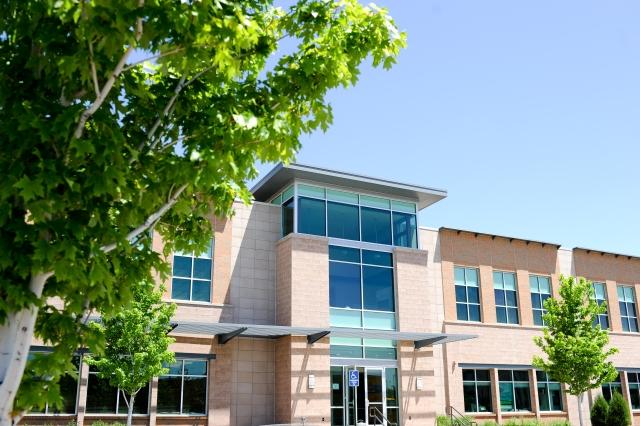Eating disorder IOP for ages 8+
Reaching out for eating disorder help can be difficult. This is why Eating Recovery Center (ERC) offers flexible care options to match you with the level of support you need right now.
In our eating disorder intensive outpatient program (IOP), we offer programming:
- Three to four hours per day
- Three to four days per week
Benefit from nutritional support, individual and group therapy, family therapy and more. Show up as you are and find the healing you deserve.

Real People. Real Stories. Real Progress.
Our expert care teams ensure people of all ages, races and gender identities get the exact support they need at each stage of their recovery. With the right care, lasting healing is possible – and we have the data to show it.
73% of patients no longer reported significant eating disorder symptoms
Our eating disorder IOP includes:
- Programming three to four hours per day, three to four days per week
- Supervision by experienced registered dietitians and mental health therapists specializing in eating disorders
- Eating disorder recovery skill building with individual therapy and interactive group therapy sessions
- Individualized meal planning, nutritional support and education
- Evidence-based eating disorder therapies, including acceptance and commitment therapy (ACT), dialectical behavior therapy (DBT), cognitive behavioral therapy (CBT), emotion-focused family therapy (EFFT) and more
- Weight-inclusive, trauma-informed and gender-affirming care and LGBTQIA+ and BIPOC support
- Robust aftercare support
- Free virtual support groups for caregivers
- Both in-person/on-site and virtual/at-home IOP options available
Find Recovery with Evidence-Based Therapies

Eating disorder IOP for kids & teens
Find support from our comprehensive care team. Our eating disorder IOP for children and adolescents is designed to meet the unique needs of young people ages 8-17.*
Participants can stay actively involved with school, friends and extracurricular activities as they make progress in recovery in our child-friendly centers.
Programming takes place three to four days a week, three to four hours per day.*
*Ages and hours vary by location.

Eating disorder IOP for adults
Take ownership of your recovery and stay active in your life. Our eating disorder IOP can serve as a step-down level of care to help you transition from a residential or partial hospitalization program.
You can also admit directly into IOP treatment to gain more support and skill building than outpatient therapy can provide.
Benefit from working with a compassionate care team that knows your story and is there for you every step of the way. Find meaning and purpose as you align your values with your goals.

Benefit from family & caregiver support
When a loved one has an eating disorder, the entire family is often affected and deserves support. This is why we educate and empower caregivers and family members to support their loved one.
Through continued involvement, education and support, we will equip you to help your loved one during treatment and after discharge.
Feel more confident as you build your knowledge about eating disorder recovery through our many family resources such as:
- Ongoing free virtual caregiver support groups
- Virtual Family & Friends Education Series
- Hope Orientation
- Eating Disorders 101
- Weekly family therapy sessions

Supporting you during and after care
After you or your loved one completes care at ERC, you’ll benefit from ongoing education, resources and support groups.
Our community outreach liaisons dedicate their days to supporting alumni and their family members throughout the recovery journey. Follow-up phone calls, emails, events and support groups provide you with the resources you need.

Discover our virtual eating disorder IOP: Eating Recovery At Home
If online therapy is your preference, discover our convenient, award-winning virtual IOP program: Eating Recovery At Home. This online eating disorder IOP for adults, teens and children is just as effective as our in-person IOP.
ERC’s in-person and virtual IOP both use the same evidence-based curriculum and include nearly identical programming. Fitting easily into your daily life, start healing from the comfort of home with nine hours or more of weekly programming:
- Individual and group therapy
- Nutritional and meal guidance
- Family therapy and education
- Alumni support, groups and events
Recognized by top publications as the Best Online Therapy Service in 2022, 2023 and 2024, and covered by most major insurers, discover virtual IOP and take recovery home today.
Why Choose ERC?
Think of ERC’s continuum of care as a “golden thread” providing you with smooth transitions and consistency throughout treatment. ERC’s continuum of care team has been intentionally and carefully trained to:
- Get to know who you are as a whole person
- Provide consistent support that moves with you
- Reduce the risk of relapse during treatment
- Eliminate your stress in having to tell your story again and again
- Ensure access to medical and psychiatric experts in the eating disorders field
- Offer education and support to families and caregivers
- Increase the likelihood of insurance approving or extending your care
- Make sure that you have access to ongoing education, events and support groups after discharge
- Create seamless transitions with each level of care change
- Ensure uninterrupted connections with school (for child and adolescent patients)

Our continuum of care model ensures that you will be connected with the right support at the right time, from the initial assessment all the way through to aftercare.
Get matched with the exact support you need.
With one conversation, our mental health professionals will help you better understand what you’re going through and what you need.
We will meet you where you are, listen to your story in a therapeutic setting, and match you with the level of support that meets your struggle.
Conditions we treat
-

Eating Disorders
An eating disorder is a treatable mental illness that includes a number of different symptoms, including extreme emotions, attitudes, and behaviors surrounding weight and food issues.
-

Anorexia
Anorexia nervosa is characterized by an obsessive fear of weight gain and a refusal to maintain a healthy body weight.
-

Atypical Anorexia
You can’t tell if someone has an eating disorder just by looking at them. See how atypical anorexia affects people in a variety of body shapes and sizes.
-

ARFID
ARFID is a lesser known eating disorder that frequently begins as early as infancy or childhood, but adults can also suffer.
-

Binge Eating Disorder
Binge eating disorder is characterized by frequent overeating – at least once a week for three months – combined with a lack of control, intense feelings of distress and several other characteristic behaviors.
-

Bulimia
Bulimia is characterized by patterns of bingeing and purging.
-

Compulsive Overeating
Compulsive overeating can involve binge eating and weight gain, but it can also involve other behaviors.
-

Diabulimia
The term diabulimia is used to describe the diagnosis of an eating disorder in an individual with type 1 diabetes. These patients intentionally misuse insulin for weight control.
-

OSFED
Some eating disorders do not meet all of the diagnostic criteria for specific diagnoses like anorexia nervosa and bulimia nervosa.
-

Orthorexia
Some people go to extremes to “eat clean” at all times. This may lead to a disordered eating pattern known as orthorexia.
View all levels of care
-

Inpatient
Our Inpatient programming is designed to support adults, children and adolescents of all genders who are acutely ill and are experiencing medical and mood instability as a result of their eating disorder.
-

Residential
Within ERC Pathlight's step-down model of care, the Residential eating disorder treatment program as well as the Residential mood & anxiety treatment program offer medically stable patients a highly-structured and supportive 24-hour treatment environment.
-

Partial Hospitalization
Our Partial Hospitalization Program (PHP) offers some of the same intensity and structure of Residential mood, anxiety, and eating disorder treatment while providing additional opportunities to practice recovery outside of the controlled eating disorder treatment environment during evenings at home or in peer-supported apartment communities.
-

On-Site Intensive Outpatient Treatment
Our Intensive Outpatient program is a flexible mood, anxiety, and eating disorder treatment program that allows patients to work, go to school, or care for children during the day and sleep at home at night.
-

Virtual Intensive Outpatient - Eating Recovery At Home
ERC is removing the barriers that can keep patients with anorexia, bulimia, and other eating disorders from receiving treatment. Through telebehavioral health programming, Eating Recovery At Home (our virtual Intensive Outpatient Program) offers the same proven care as our in-person treatment centers.
Hide Last Child Layout Div



















